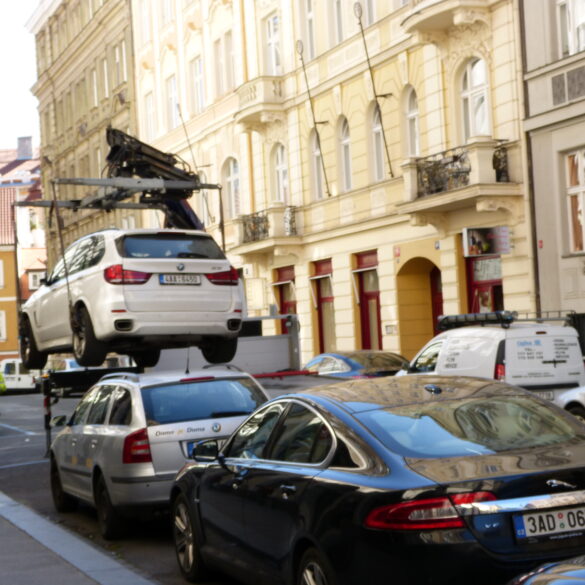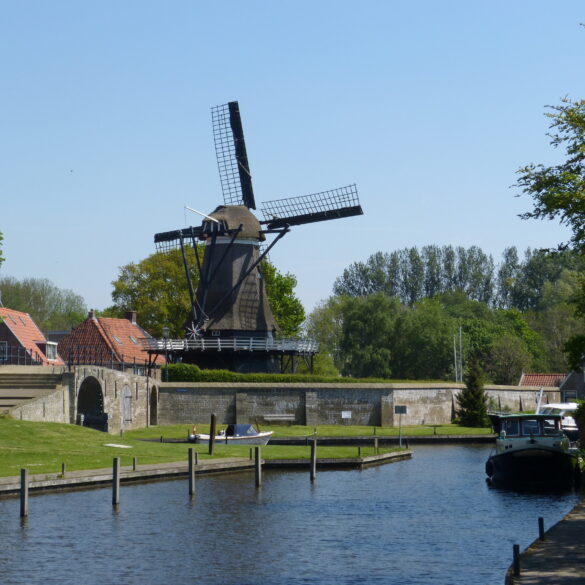We discovered the wonder that is the Eurovision Song Contest while vacationing in Lake Bled, Slovenia back in 2012.
Ever since then, we’ve tried to watch it in a different European country each year.
In 2013 we watched in Tallin, Estonia.
In 2014 we stayed home and watched in Germany.
In 2015 we flew to Belgrade, Serbia for Eurovision weekend.

We arrived late at night and did nothing more than check into the hotel and get some sleep.
The next morning we headed over to Republic Square to find a place for breakfast.
Unbeknownst to Sean, I’d made arrangements for us to meet my cousin Deirdre in Belgrade for the weekend.
By now he is somewhat used to my relatives popping up all over Europe to meet us, but he was surprised by this visit so score one for me.
It turned out to be a rainy morning, so after breakfast we walked to the Nikola Tesla Museum.

Among other things, the museum contains that sphere with Tesla’s ashes.
It’s behind glass in a very dark area with a very small sign and I think most of the people at the museum didn’t even know it was there.
Nikola Tesla was a Serbian inventor and apparently a very quirky guy.
He was very tall, extremely thin, ate almost nothing, slept very little, befriended pigeons and was apparently celibate.
The museum is small and can be covered in an hour or two.
There are live demonstrations of some of his inventions and hands-on participation to show how they work.

It’s entertaining enough if you’re looking for something to do in bad weather like we were.
By the time we left the museum, the weather had cleared up a bit and we started walking back towards Republic Square.
On the way there, we unexpectedly ran into a little changing-of-the-guard ceremony.

We have seen these ceremonies in numerous countries and I never get tired of watching them, even if it’s only two guards changing places.
There were no other spectators at this ceremony so we had our own private performance.
We arrived back at Republic Square hoping to take the free walking tour that was scheduled to begin at 4:00 p.m.

That statue is the main meeting point at the square and is a monument to Prince Mihailo.
An urban legend says that the sculptor, Enrico Pazzi, killed himself after completing the statue when he realized he’d forgotten to put a helmet on the prince.
If anyone tells you to meet them at the horse statue in Belgrade, that’s the one they mean.
Unfortunately the walking tour guide never showed up and everyone who was waiting eventually drifted away.
We decided to go in search of some tipples.
It was raining on and off throughout the day and for some odd reason we saw a lot of this.
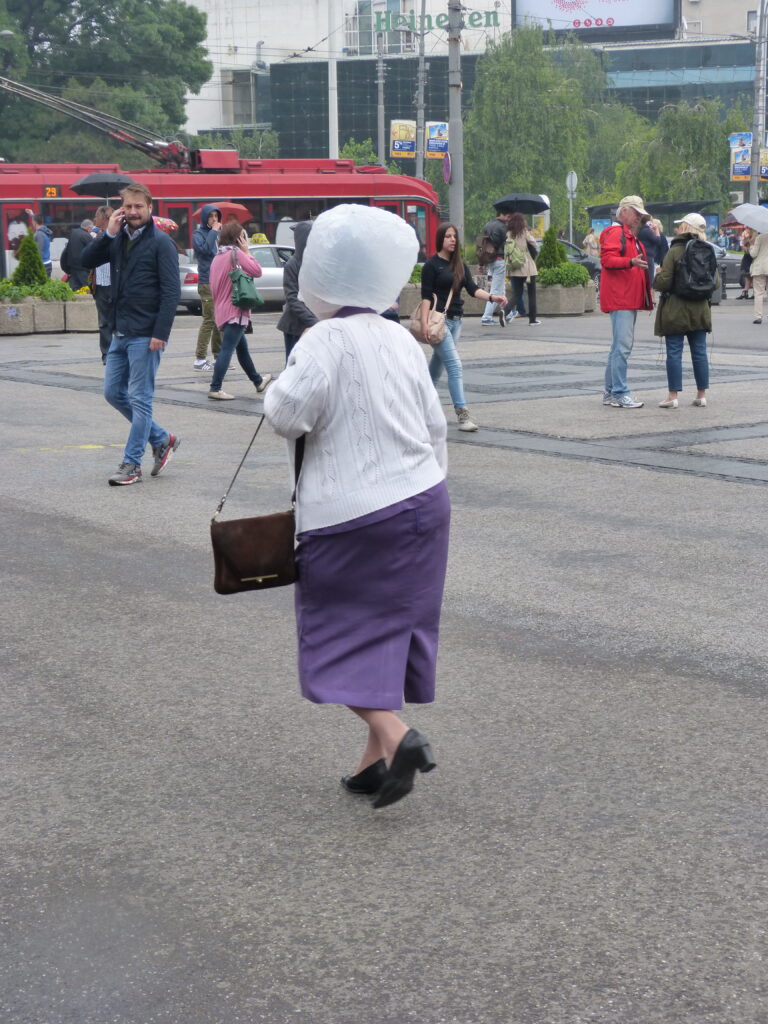
It seemed to be an acceptable thing in Belgrade to stick a plastic bag over your head when it was raining.
I’m usually okay going with the whole “When in Rome….” thing while traveling, but I draw the line at the plastic-bag-on-the-head thing.
Not far from Republic Square, we found a bar with some outdoor seating and after ordering some beers we perused the menu.

Sean ended up having “just what lions eat” but nothing on the menu appealed to me, not even “with mrs sexy” or “slapping student”.
I stuck with the Tipple of the Trip, good ol’ Serbian beer.

Jelen is one of the more popular beers in Serbia.
It is brewed in Serbia, although the brewery is owned by the Molson Coors company.
After leaving that bar we wandered around a bit and saw this intriguing sign.

Of course I had to go inside.

What do you think?
Does he look like the coolest man in the world?
That bar had a little outdoor seating area as well, so we sat outside and had a Nikšićko beer.
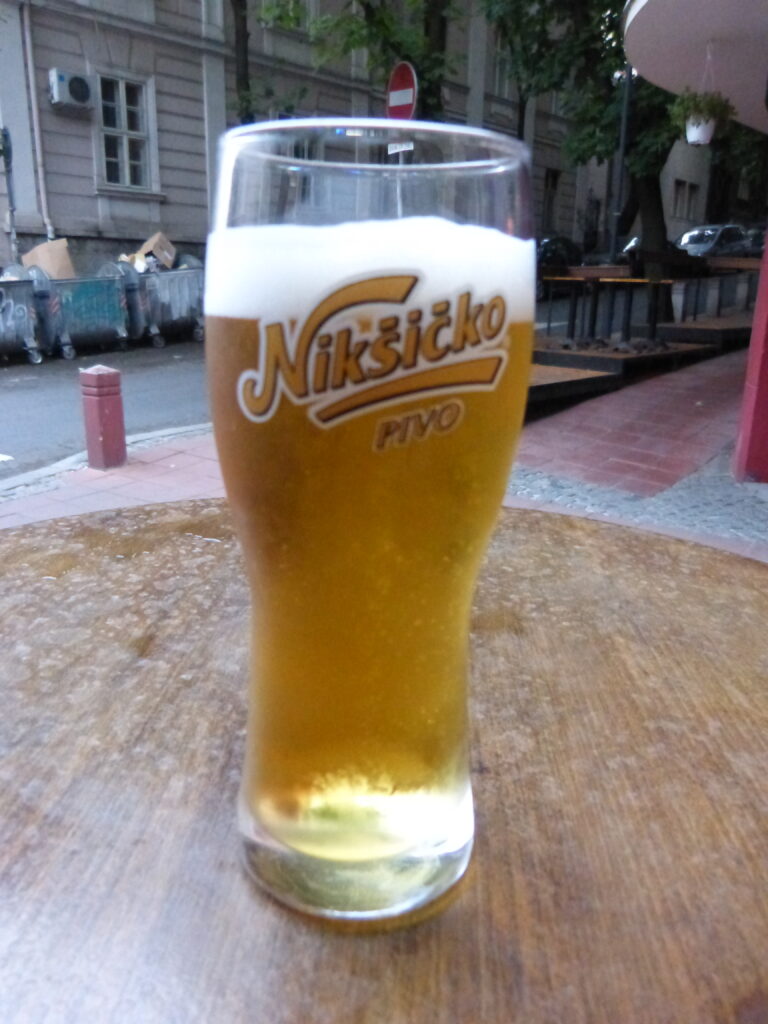
It’s brewed by the same brewery that makes Jelen beer.
Continuing on our walk around town, we ended up on a street called Skadarlija, which is in what’s called the bohemian quarter of Belgrade.
It had quite a lively nightlife with lots of restaurants, cafés, shops and street vendors.
On a whim we decided to have a late dinner at a place called Restaurant Guli.
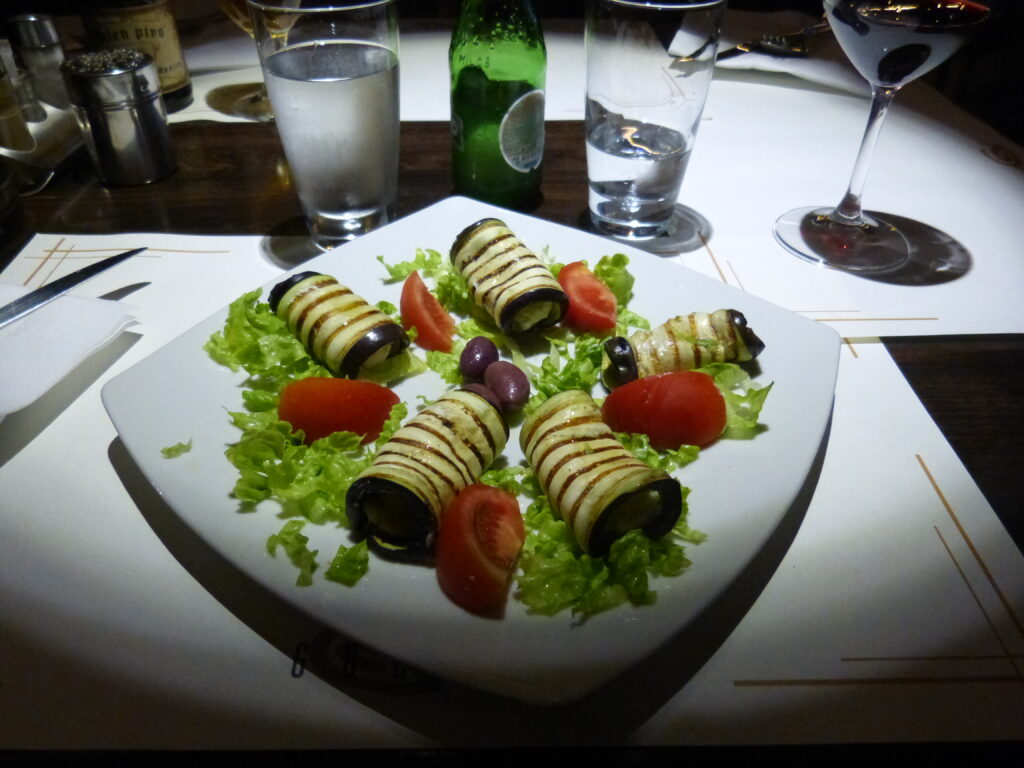
I am here to tell you that the appetizer I had was one of the best I’ve ever had.
It was grilled eggplant slices with some kind of incredibly delicious feta cheese mixture rolled up inside of them, served hot.
My mouth is watering just thinking about them.
Having done quite a bit of walking that day, after dinner we took a taxi back to the hotel.
The next morning, we went back to the Boutique Café & Restaurant at Republic Square for breakfast.

Sean had discovered the previous day that the restaurant had a breakfast for two on the menu.
The waiter appeared to be amused by the fact that Sean intended to eat the breakfast for two on his own.
He enjoyed it so much that he ordered it again on our second morning in Belgrade.
After breakfast we headed back over to the horse statue to give the free walking tour a second chance.
The tour guide did show up this time and several people mentioned that they’d been there the previous evening when the guide never showed.
She didn’t appear to believe us and called the office, who also insisted the guide had shown up the previous day.
I found it a bid odd.

During the tour we ended up back on Skadarlija.

Here the guide shared some homemade raki with the group while we learned about the history of Belgrade and Serbia.
Raki is an adult beverage that is very similar in taste to turpentine.
Not that I’ve ever ingested turpentine, mind you, but if I ever do I’ll probably say “Huh, tastes just like raki.”
At one point we crossed a street and saw this.
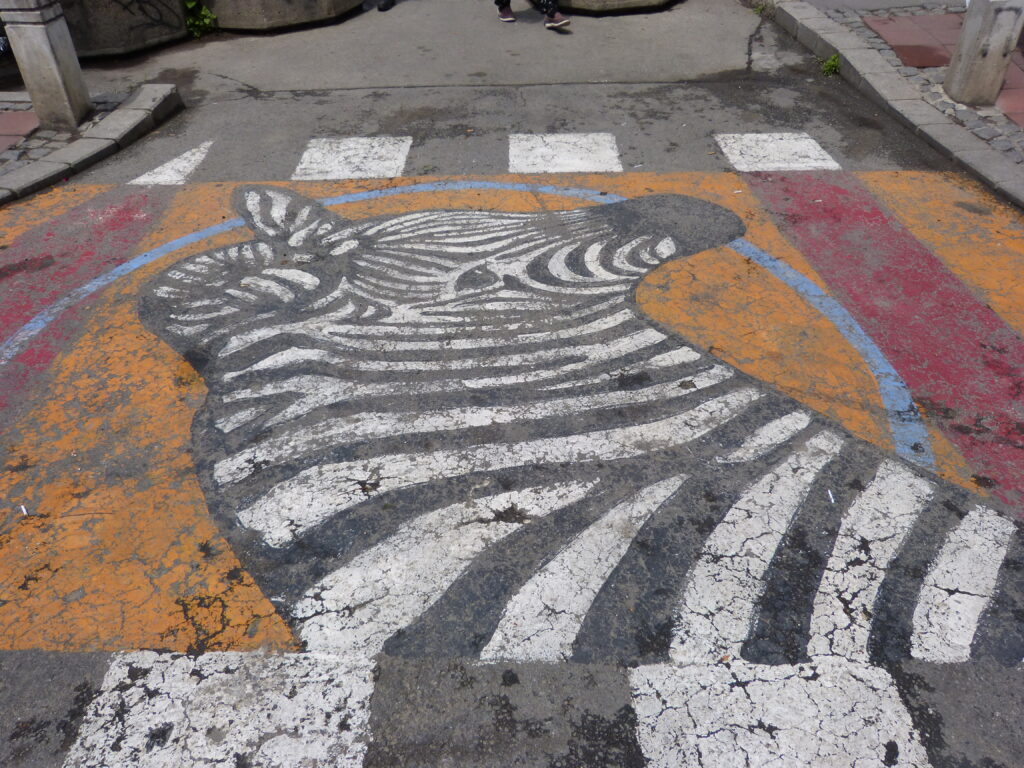
I thought it was very clever of them to paint a zebra at a zebra crossing.
One of the more interesting parts of the tour was when we learned about hyperinflation in Serbia in the 1990s, when it was still part of the former Yugoslavia.

The currency in Yugoslavia was a dinar (and it’s still a dinar in Serbia), and that is a 500-billion note.
Over the course of about 16 months in the 1990s, inflation in Yugoslavia increase 5 quadrillion percent.
That’s 5,000,000,000,000,000 percent.
We learned that people pretty much had to carry wheelbarrows full of money to the store just to buy a loaf of bread – when bread was available, that is.
It’s very sobering to realize how people lived but heartening to realize how far places like Belgrade have come in the last 20 years or so.
Our walking tour also took us to the Belgrade Fortress.

The fortress, whose origins date back to the 3rd century, sits on a hill.
We spent a bit of time there enjoying the views over the rivers – Sava and Danube – and the city.
Just as the tour was ending, we were treated to a lengthy procession of people dressed in a variety of colorful, traditional outfits.

After the tour we stopped for some lunch and something cold to drink.
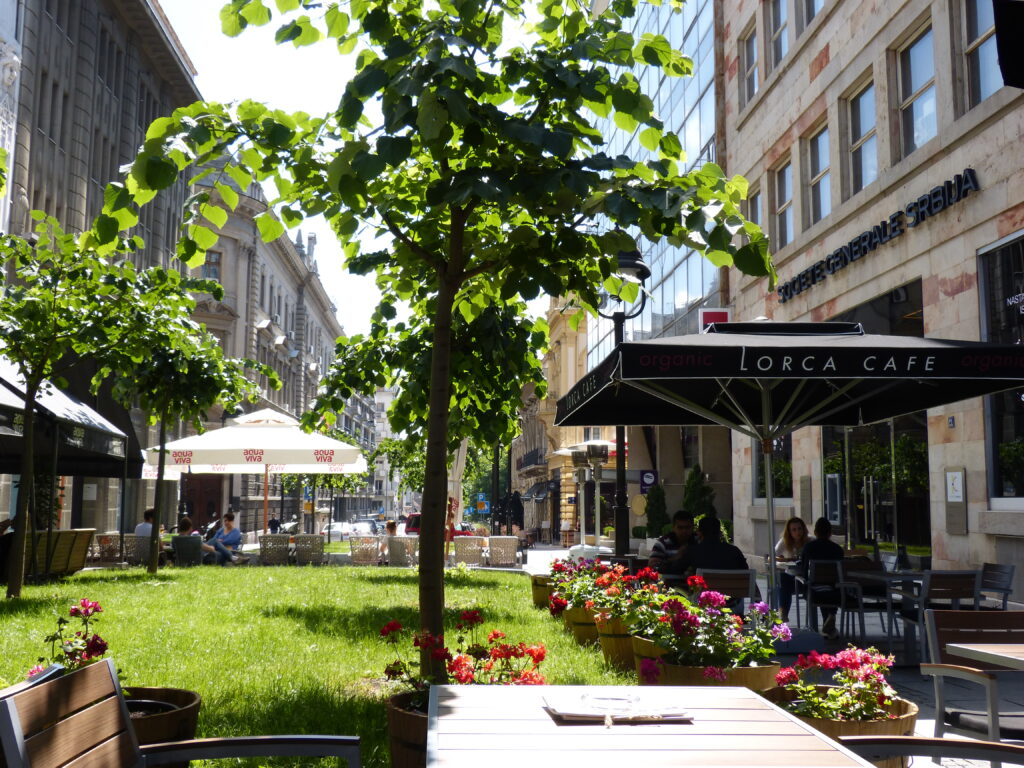
One thing that surprised me about Belgrade was how much green space there was.
Another thing that surprised me was that our Serbian waiter at that place introduced us to his wife, who was from New York not far from where I grew up.
“Small world” is not just a cliché.
After lunch cousin Deirdre went on another tour while Sean and I did our own walk across the “Brankov most” or Branko’s bridge across the Sava river.
Looking back from about halfway across the bridge, you can see the fortress on the hill.

That evening we hung out in our hotel suite, drank good Serbian beer and watched Eurovision.
The following morning after breakfast we took a taxi over to the church of Saint Sava.
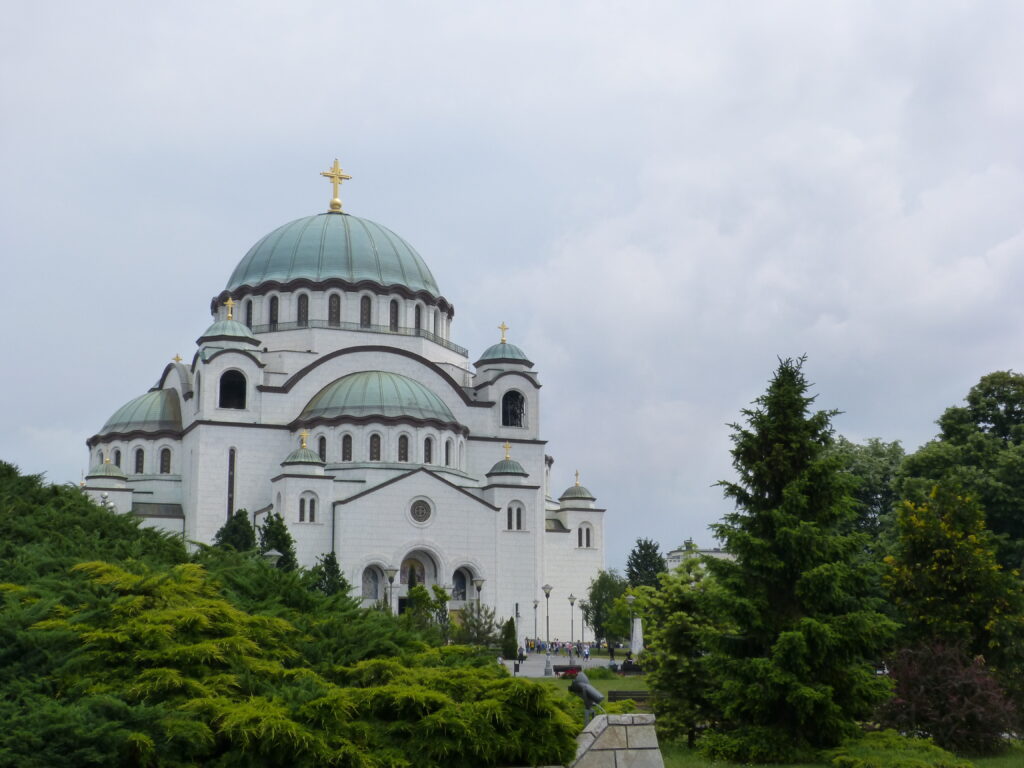
It’s a Serbian Orthodox church that is one of the largest orthodox churches in the world.
Construction on the church started in 1935 and stopped in 1941 due to the bombing of Belgrade during World War II.
It did not start again until 1985, and the outside of the church was finally finished just a few years ago.
The inside remains unfinished and is rather plain as of this writing.
After a coffee break, we walked over to the Church of Saint Mark.

Like the church of Saint Sava, it is also a Serbian Orthodox church and is one of the largest in the country.
Also like Saint Sava, while the outside of Saint Mark was completed in 1940, the interior is still incomplete.
Continuing on our walk, we passed by the House of the National Assembly.

Completed in 1938, it sits on a busy square and imposing is the adjective that comes to mind to describe it.
Just across from the National Assembly building is Pioneer Park, right in the center of Belgrade.
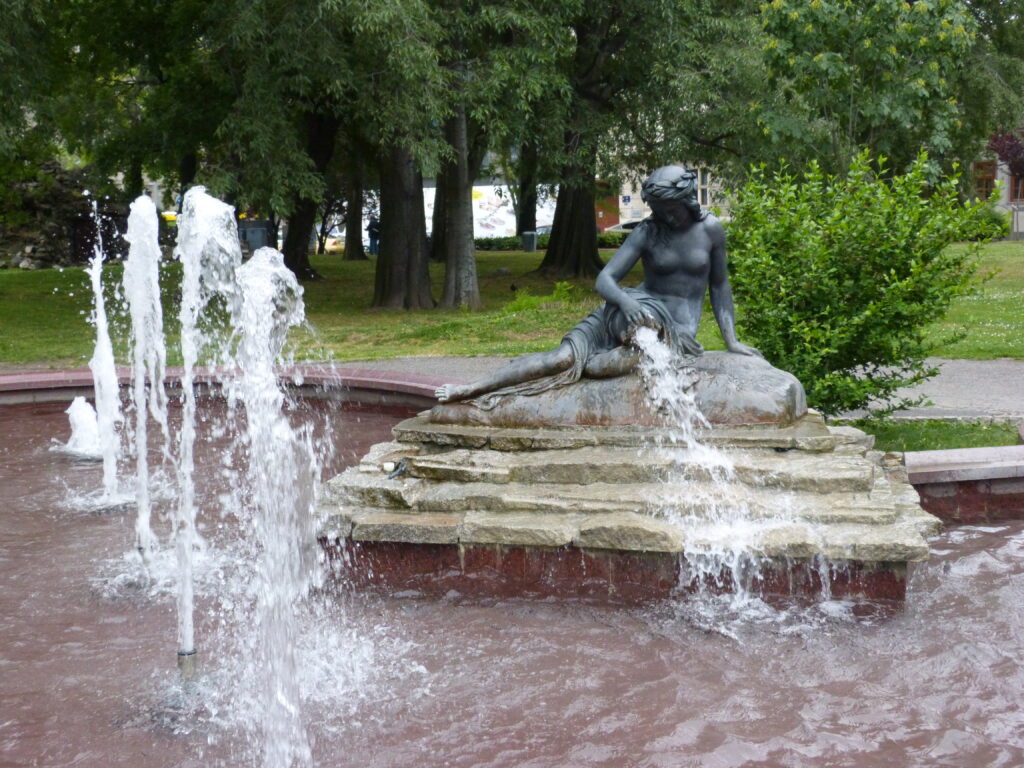
The “Girl with a Pitcher” fountain is a Serbian Cultural Heritage Site.
After walking through the park, it was time for cousin Deirdre to head back home and we parted ways until our next European meet-up.
As Sean and I were walking back to our hotel, we for some reason ducked down a little alleyway and ended up in an empty lot behind a building.
It was a bit sketchy with empty booze bottles and soiled clothing and bedding strewn around, but the walls were covered in colorful street art.
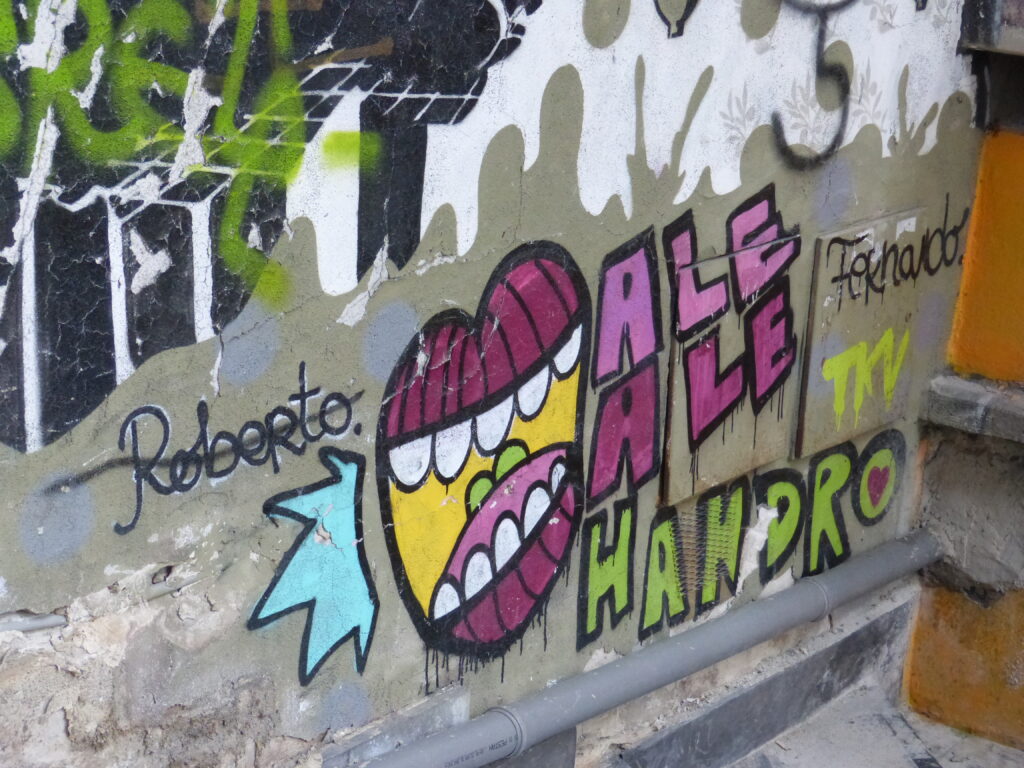
Seems someone was a Lady Gaga fan who didn’t quite know how to spell Alejandro.
That evening we just relaxed by strolling around the city, eating dinner outdoors and strolling around some more.
The following day we had some time before our flight home so we walked over to the fortress again.
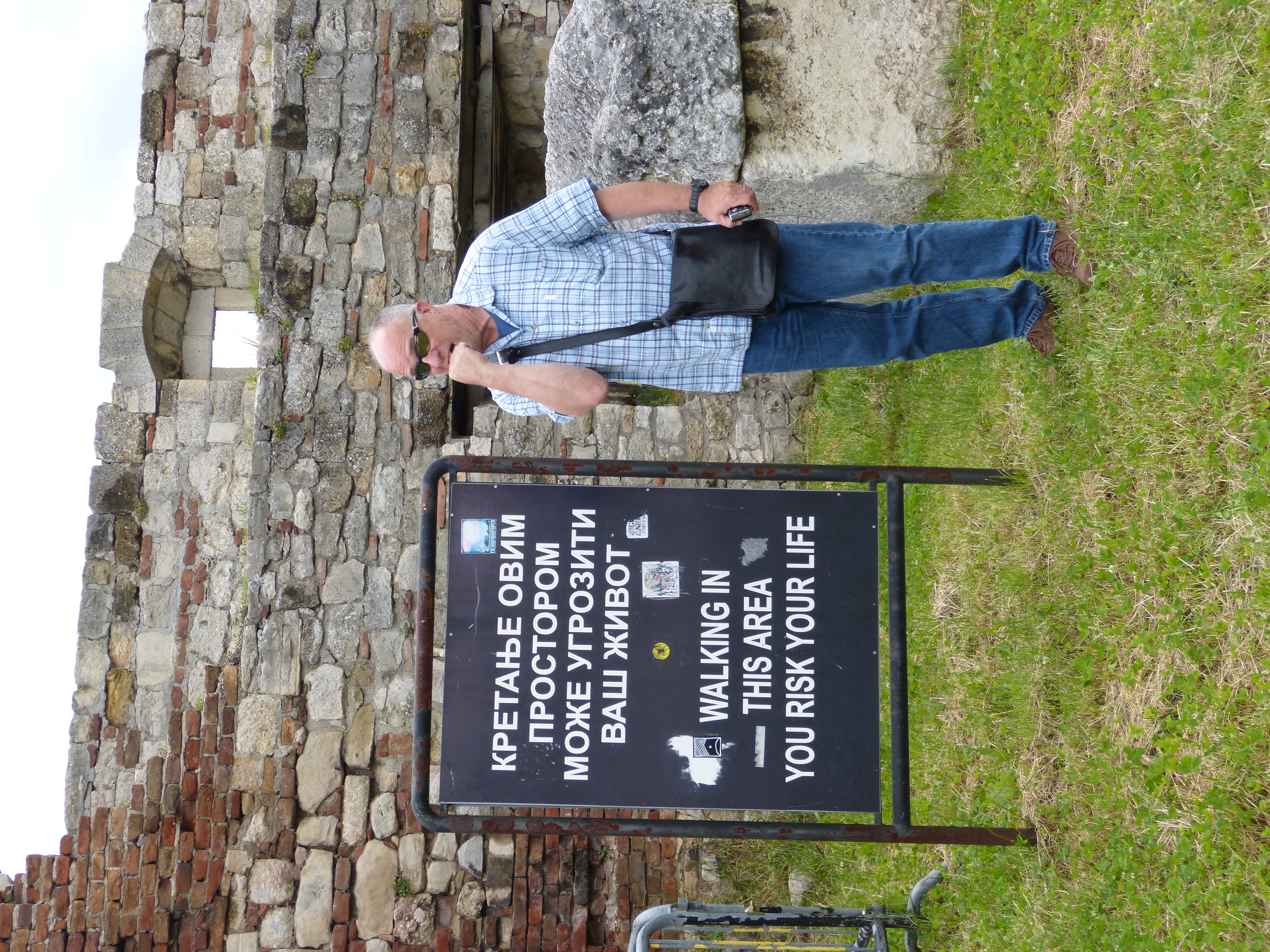
You can see that Sean was terrified in this area but luckily made it out alive.
We sat outside one of the cafés in the fortress and had one last drink in Belgrade.

I’ve had worse views while drinking.
After that we headed to the airport.
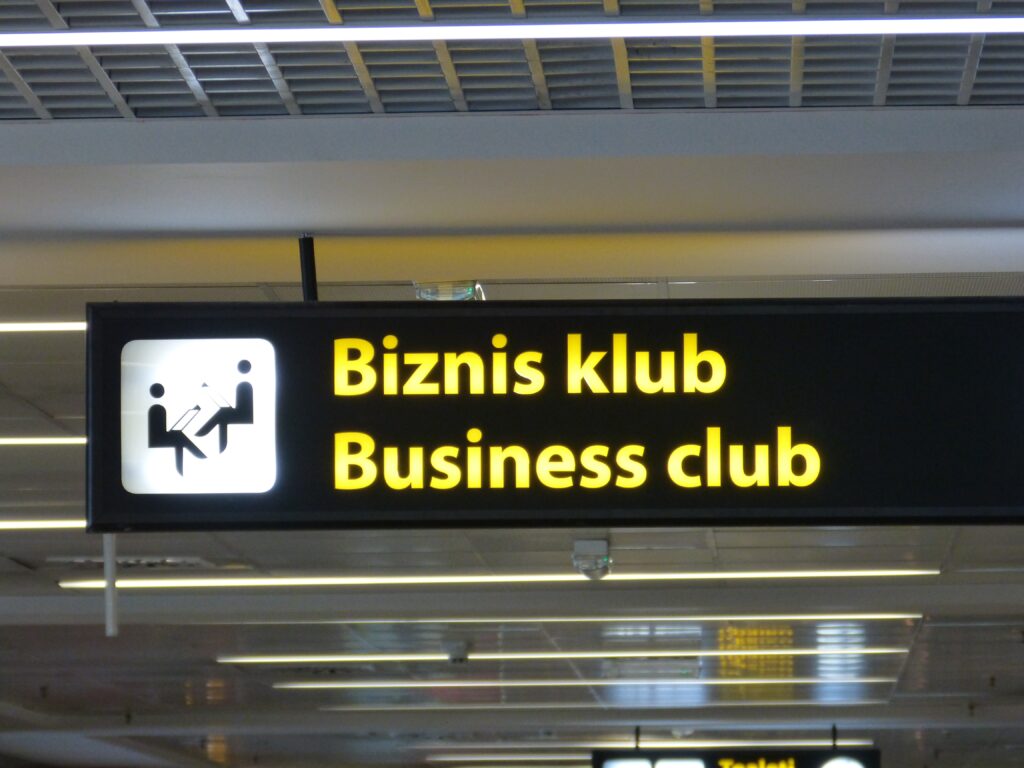
(Bizniz with a z.)
With our short visit to Serbia, we have now visited all six countries that made up the former Yugoslavia (the others are Bosnia and Herzegovina, Croatia, Macedonia, Montenegro and Slovenia).
We really like visiting the Balkan Peninsula countries and hope to see more of them within the next couple of years.

